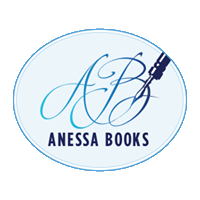 It used to be that if a writer went for advice on how to get their writing done quickly, the answer was simply BIC (butt in chair). Today, things are a little more complicated. So here are five easy things you can do to speed up your writing:
It used to be that if a writer went for advice on how to get their writing done quickly, the answer was simply BIC (butt in chair). Today, things are a little more complicated. So here are five easy things you can do to speed up your writing:
- BIC-TOI&N: Butt in Chair-Turn Off Internet & Notifications. You not only want your bottom firmly planted in your chair (or feet firmly planted in front of your standing desk), but you need to shut off all of the fascinating distractions that are calling to us constantly.
You can’t possibly write—and really get into your story—if you’re constantly being bombarded with notifications and the allure of the internet (read Facebook, Instagram, Pinterest, Youtube—whatever your choice of distraction).
If you absolutely must look up something, be strong—turn the internet back on, look it up and don’t let yourself get sucked into the whirlpool of following thread after thread. Find your answer and get back to writing! Or, even better, make a note in your manuscript to look it up later.
- brain.fm: I’ve recently learned of this amazing tool to help me concentrate. There is actual science behind the music or sounds played on this website. I have to admit, I haven’t read their white paper on it, but believe me, it works! Put on your headphones and click the “Focus” button. Within minutes you’re able to focus and concentrate on your writing—and even more importantly, stay there!
- Sprints: A lot of people find sprinting (either alone or in groups, which especially during Nano month are super-easy to find) really helpful. You only need to concentrate for 10, 15 or 20 minutes at a time. You can go for as long as 30 minutes, but then it’s recommended that you stop and take a break.
Let your brain relax for a few minutes after your sprint (turn your internet back on, check your email, facebook or whatever—but do something completely mindless and different). If you really want to be healthy about it, go for a five or ten-minute walk, preferably outside. Then put your timer back on and sprint again (this is also called the Pomodoro Method).
Some people find doing this in groups very helpful because then you have the added benefit of accountability—you’ll need to check in with your group after your sprint and tell them how many words you wrote!
- Have a special place: It’s been shown that your brain will associate a certain task with a certain place (it’s why scientists recommend that you don’t watch tv or read in bed so that you associate that place with relaxation and sleep). For this reason, having a certain place where you write is very helpful.
If you try to write where you do other work, your brain won’t be able to concentrate as well on your writing. You’ll be thinking about your other work. If you try to write at the dining table, your stomach might start growling, thinking that it’s going to get food.
So, find a place—either a special desk, chair or wherever you’re most comfortable—and make that your writing place. When you get there, your brain will learn that this is where you’re going to concentrate and write.
- Have a special time: All of us are most creative at certain times of the day. If you’re a morning person, you might have your most creative time first thing in the morning—get up an hour early. Are you a night owl? Then staying up after everyone else has gone to bed might be your answer.
I’ve discovered that I’m an afternoon person. I can write in the morning if I need to, but my most creative time of day is from about 4-7pm (which sometimes makes stopping to make dinner frustrating, but luckily my family is very understanding).
Bonus Trick: Keep track. Keep a calendar or an excel spreadsheet and write down how many words you wrote that day. It actually helps! And you’ll feel really good as the number of words you write every day goes up.
And there you have it, five—okay, six—super-easy things you can do write faster. Is there anything that you do that I didn’t mention? Tell me about it!
